|
|
|
|
For the past several weeks, Mi’kmaw lobster fishers in southwestern Nova Scotia have had their traps cut loose and their catch dumped by angry commercial fishers. They have been assaulted and, this past weekend, the facility they were using to store their catch was burned to the ground.
Some in the commercial fishing sector say they are worried about their future, and that the new moderate livelihood fishery launched by the Sipekne’katik First Nation threatens the stocks.
Today in The Conversation Canada Megan Bailey from Dalhousie University puts the dispute into context and writes about the science behind the lobster fishery. The number of traps being used is small in comparison to the commercial fishery. “There is no reason, no science, to suggest that the equivalent of one or two commercial vessels fishing in St. Marys Bay will be problematic,” she writes. “The sector needs to address its racism, cease its vigilantism, support dialogue and ensure that its positions are grounded in evidence.”
Also today:
Regards,
|
Hannah Hoag
Deputy Editor | Environment + Energy Editor
|

|
|
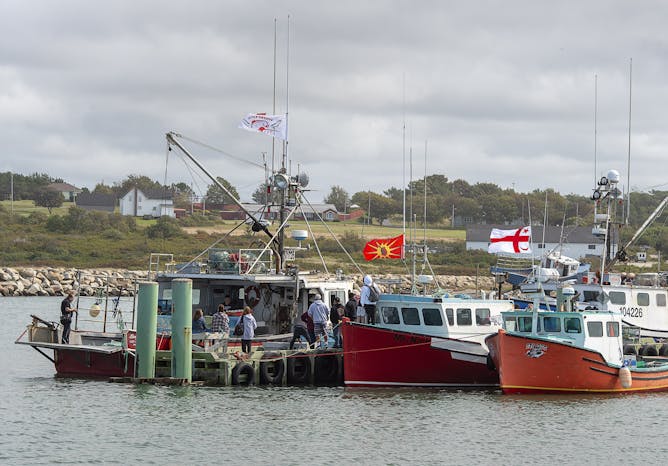
Members of the Sipekne'katik First Nation prepare to go fishing in Saulnierville, N.S., on, Sept. 17, 2020.
THE CANADIAN PRESS/Andrew Vaughan
Megan Bailey, Dalhousie University
The message from commercial fishers is that fishing in St. Marys Bay outside the commercial season is illegal and a conservation concern. In fact, it is neither.
|

U.S. President Donald Trump speaks at a campaign rally at Carson City Airport on Oct. 18, 2020, in Carson City, Nev.
(AP Photo/Alex Brandon)
Henry Giroux, McMaster University
Americans can survive a second Trump term if they resurrect a language of critique and possibility that draws from history and shields the U.S. from authoritarianism.
|
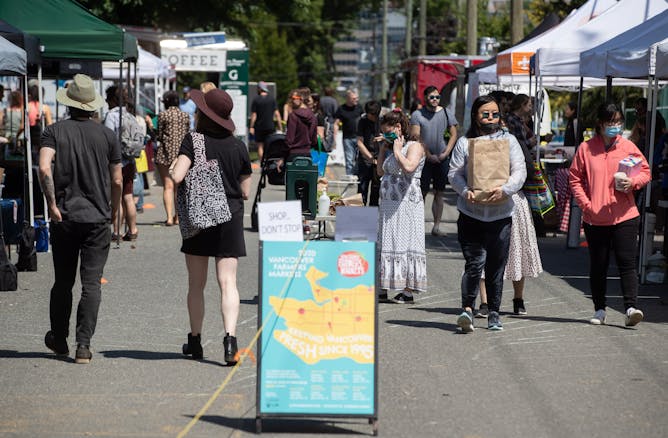
People are seen at the Mount Pleasant farmers market in Vancouver, B.C., where measures are in place to limit the number of people permitted at a time due to COVID-19.
THE CANADIAN PRESS/Darryl Dyck
Kimberly Hill-Tout, Queen's University, Ontario; William Tyler Hartwig, University of Toronto
Since the beginning of the COVID-19 pandemic, there has been an increased interest in local food. This demand could be leveraged to help develop community resilience and encourage healthier diets.
|
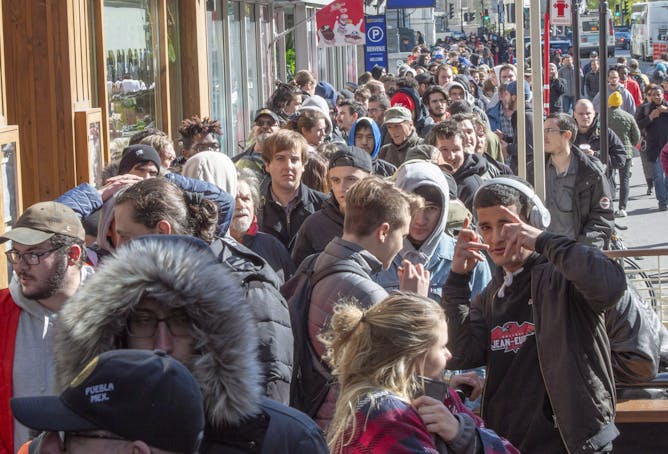
Hundreds of people line up at a government cannabis store on Oct. 17, 2018, in Montréal as the legal sale of cannabis begins in Canada.
THE CANADIAN PRESS/Ryan Remiorz
Michael J. Armstrong, Brock University
The Ontario Cannabis Store's performance greatly improved but still trailed Québec's. However, both provinces still lack a sufficient number of outlets.
|
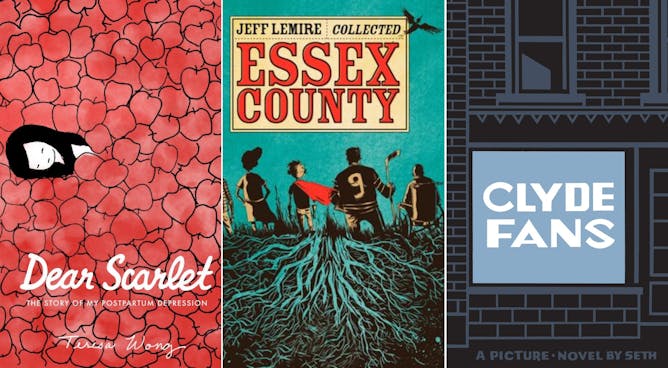
Teresa Wong’s ‘Dear Scarlet,’ Jeff Lemire’s ‘Essex County,’ and recently nominated for a 2020 Canadian literary prize, Seth’s ‘Clyde Fans.’
(Arsenal Pulp Press/Penguin Random House/Drawn&Quarterly)
Dessa Bayrock, Carleton University
Canada's Scotiabank Giller Prize didn't shortlist a graphic novel, but are we surprised? The slow but increasing acceptance of graphic novels suggests the glacial pace at which literary canons grow.
|
La Conversation Canada
|
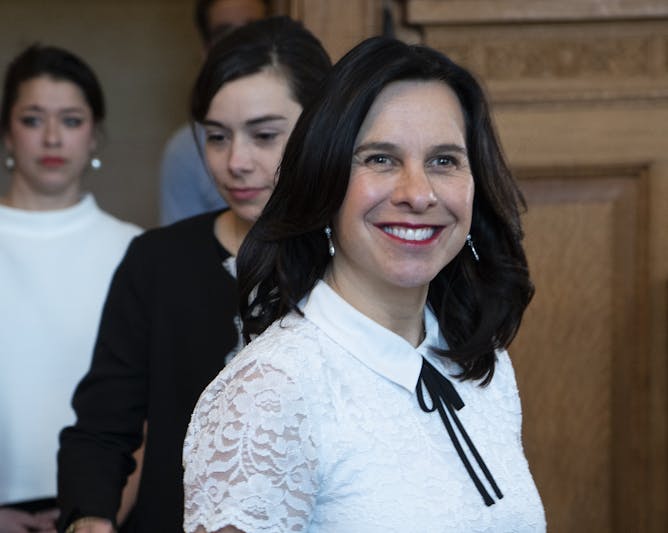
La mairesse de Montréal arrive à une conférence de presse à Montréal, le 20 mars 2019. Les médias font-ils une couverture juste de la première femme mairesse de la métropole?
La Presse Canadienne/Paul Chiasson
Alexie Labelle, Université de Montréal; Katherine V.R. Sullivan, Université de Montréal
La couverture médiatique de la mairesse Valérie Plante, de son sourire à sa bande dessinée en passant par sa gestion des chantiers, est-elle teintée parce qu’elle est une femme ?
|

Des partisans du mouvement QAnon manifestent contre les mesures prises par le gouvernement roumain pour empêcher la propagation de la Covid-19, lors d'un rassemblement à Bucarest en août.
(AP Photo/Vadim Ghirda)
Marc-André Argentino, Concordia University
Facebook et YouTube tentent d’arrêter la propagation des conspirations QAnon, mais les membres de la communauté ont trouvé de nouvelles façons de promouvoir de fausses théories sur les médias sociaux.
|
Politics
|
-
Jennifer M. Piscopo, Occidental College; Peter Siavelis, Wake Forest University
On Oct. 25 Chile will decide whether to replace its dictatorship-era constitution with a new one written wholly by the Chilean people. The vote shows how protests can change the course of a nation.
|
|
Education
|
-
David L. Di Maria, University of Maryland, Baltimore County
An effort by the Trump administration to put stricter limits on students and scholars from certain countries may cost a lot and accomplish little, an international education expert argues.
|
|
Science + Technology
|
-
Stephanie Baines, Bangor University
Banana bread had all the psychological ingredients for lockdown success.
|
|
| |
| |
| |
| |
| |
| |
|
|
|
|
|
|
|